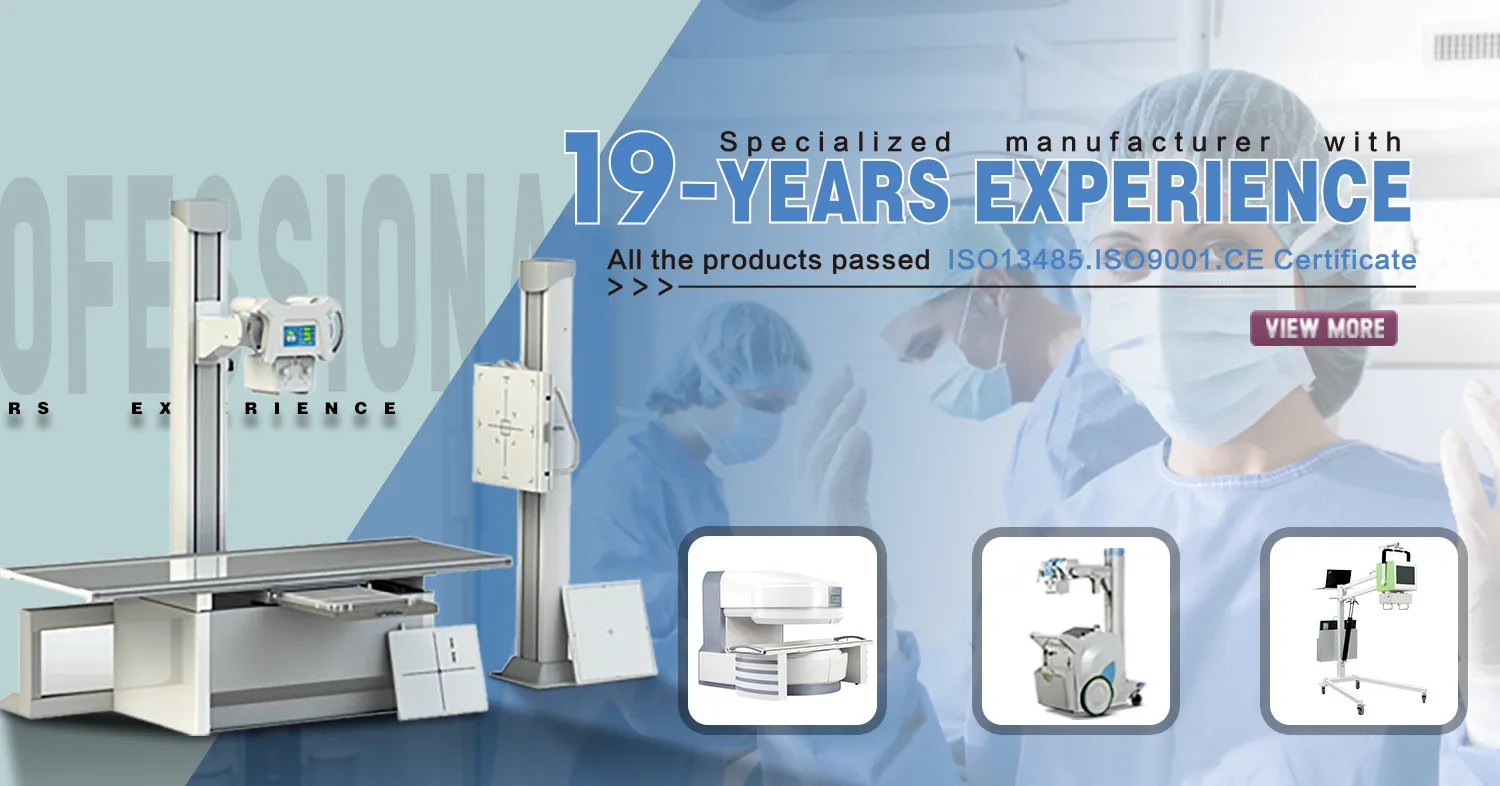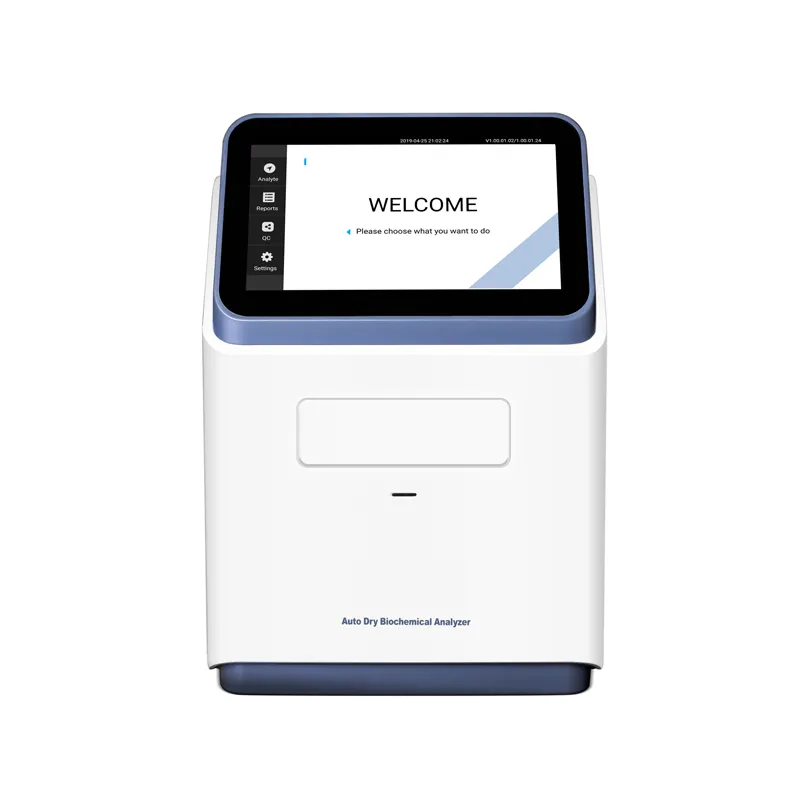
X-ray machines are an essential part of medical imaging, allowing healthcare professionals to diagnose and treat a wide range of conditions. There are several types of X-ray machines available, each with its own unique features and benefits. In this article, we'll explore the different types of X-ray machines in detail.
- Conventional X-ray Machines
Conventional X-ray machines are the most common type of X-ray machine found in hospitals and clinics. These machines use electromagnetic radiation to create images of the inside of the body, which are then used to diagnose a wide range of medical conditions. Conventional X-ray machines are relatively simple to use and produce high-quality images quickly.
- Computed Tomography (CT) Scanners
CT scanners use X-rays to create detailed images of the body from different angles. These machines are particularly useful for diagnosing conditions that are difficult to see with conventional X-ray machines, such as tumors and blood clots. CT scans are also used to guide surgical procedures and monitor the effectiveness of treatments.
- Fluoroscopy Machines
Fluoroscopy machines use X-rays to create real-time images of the body as it moves. These machines are often used during surgical procedures to guide the placement of medical devices or to monitor the progress of the procedure. Fluoroscopy machines are also used to diagnose conditions such as gastrointestinal problems and kidney stones.
- Digital Radiography (DR) Machines
Digital radiography machines use digital technology to capture and store X-ray images. These machines produce high-quality images quickly and can be used to diagnose a wide range of medical conditions. Digital radiography machines are also more environmentally friendly than conventional X-ray machines, as they do not require the use of film or chemicals.
- Portable X-ray Machines
Portable X-ray machines are lightweight and compact, making them ideal for use in emergency situations or in remote locations. These machines can be used to diagnose a wide range of medical conditions, including broken bones and pneumonia. Portable X-ray machines are also useful for monitoring the progress of treatments and for diagnosing conditions in patients who are unable to move.
- Mammography Machines
Mammography machines use low-dose X-rays to create images of the breast tissue. These machines are used to screen for breast cancer and to diagnose breast conditions such as cysts and tumors. Mammography machines are also used to guide biopsies and other breast procedures.
- Dental X-ray Machines
Dental X-ray machines are used to create images of the teeth and jaw. These machines are used to diagnose dental conditions such as cavities, gum disease, and impacted teeth. Dental X-ray machines are also used to plan and monitor orthodontic treatments.
In conclusion, there are several types of X-ray machines available, each with its own unique features and benefits. Conventional X-ray machines are the most common type of X-ray machine found in hospitals and clinics, while CT scanners are particularly useful for diagnosing conditions that are difficult to see with conventional X-ray machines. Fluoroscopy machines are often used during surgical procedures, while digital radiography machines are more environmentally friendly than conventional X-ray machines. Portable X-ray machines are lightweight and compact, making them ideal for use in emergency situations or in remote locations. Mammography machines are used to screen for breast cancer, while dental X-ray machines are used to diagnose dental conditions.
When it comes to choosing the right X-ray machine for a particular application, there are several factors to consider. These include the type of condition being diagnosed, the size and weight of the patient, and the level of detail required in the images.
For example, if a patient has a suspected bone fracture, a conventional X-ray machine may be sufficient to diagnose the condition. However, if the patient has a suspected blood clot or tumor, a CT scan may be required to provide a more detailed image.
In addition to medical applications, X-ray machines are also used in a variety of other industries. For example, X-ray machines are used in the food industry to inspect for contaminants and in the construction industry to inspect for defects in materials.
It's important to note that X-ray machines do expose patients to ionizing radiation, which can increase the risk of cancer and other health problems. However, the benefits of X-ray imaging generally outweigh the risks, particularly when the imaging is used to diagnose and treat medical conditions.
In conclusion, X-ray machines are an essential tool in modern medicine, allowing healthcare professionals to diagnose and treat a wide range of conditions. There are several types of X-ray machines available, each with its own unique features and benefits. When choosing an X-ray machine, it's important to consider the specific needs of the patient and the level of detail required in the images. While X-ray imaging does involve some risk, the benefits generally outweigh the risks when used for medical purposes.
In recent years, there has been a growing interest in developing new types of X-ray machines that are safer and more effective than traditional machines. For example, some researchers are exploring the use of X-ray phase-contrast imaging, which uses the phase of X-rays as they pass through the body to create images that are more detailed than those produced by traditional X-ray machines.
Another area of research is the development of X-ray machines that use lower doses of radiation. This can help to reduce the risk of radiation exposure for patients, particularly those who require frequent imaging.
In addition to these technological advancements, there are also efforts underway to improve the training and education of healthcare professionals who use X-ray machines. This includes providing training on radiation safety and best practices for reducing radiation exposure.
Overall, X-ray machines are an essential tool in modern medicine, allowing healthcare professionals to diagnose and treat a wide range of conditions. While there are risks associated with X-ray imaging, these risks are generally outweighed by the benefits when used for medical purposes. As technology continues to advance, we can expect to see new and innovative uses of X-ray machines that further improve patient outcomes and safety.
In addition to the advancements in technology and training, there are also efforts to improve access to X-ray machines in developing countries and rural areas. Lack of access to medical imaging is a major barrier to healthcare in many parts of the world, and X-ray machines can play a crucial role in improving diagnosis and treatment.
Organizations such as Radiology Without Borders and the International Organization for Medical Physics are working to provide X-ray machines and training to healthcare professionals in developing countries. These efforts can help to improve the quality of healthcare and reduce the burden of disease in these areas.
Finally, it's important to note that X-ray machines are just one tool in the broader field of medical imaging. Other types of imaging technologies, such as magnetic resonance imaging (MRI) and ultrasound, are also used to diagnose and treat medical conditions.
Each type of imaging technology has its own unique features and benefits, and healthcare professionals must choose the right technology for each individual patient and condition. By continuing to develop and improve these technologies, we can improve patient outcomes and advance the field of medicine as a whole.





